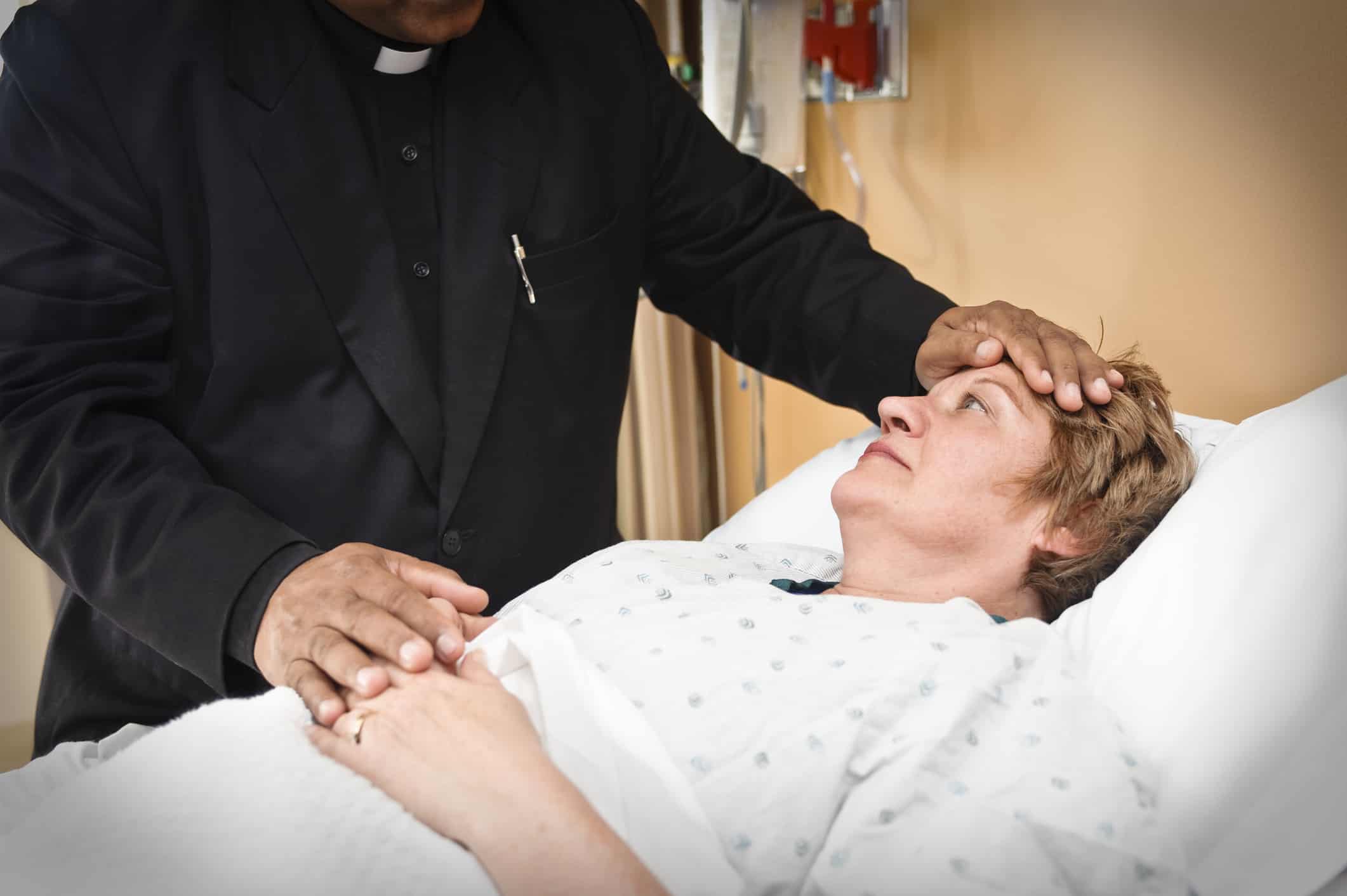Throughout the Gospels, there are stories of Jesus caring for and healing the sick, both physically and spiritually. The Church continues Jesus’ healing ministry in the world through the Sacrament of the Anointing of the Sick. The theology and practice of the Sacrament can be traced back to the New Testament in the book of James (5:13-15).
“The anointing of the sick, by which the Church commends the faithful who are dangerously ill to the suffering and glorified Lord in order that he relieve and save them, is conferred by anointing them with oil and pronouncing the words prescribed in the liturgical books” (Canon Law 998).
For more information on how to receive the Sacrament of the Anointing of the Sick from our priests, please click here or call the Parish Office at (904) 264-0577.
The Pastoral Care of the Sick
The Church sees the sacrament of the Anointing of the Sick within the context of human illness and the Christian obligation to care for the sick.
- Through their faith, Christian grasp more deeply the mystery of suffering and their unity with Christ, who loves and cares for the sick.
- Sickness is not a punishment inflicted on each individual for personal sins.
- Those who are sick give witness to Christ through their suffering and serve as a reminder of the essential or higher things of life.
Who May Receive the Sacrament?
The Anointing of the Sick is not for those only who are the point of death. The Sacrament may be received by:
- Those who are seriously ill.
- Those who are advanced in age.
- Those who are undergoing serious surgery.
- Those who are suffering from chronic ongoing pain.
- Those who are mentally unwell.
The Sacrament may be repeated if illness should become more serious or relapses.
The Prayer of the Church
The Sacrament of the Anointing of the Sick is accomplished by the anointing of the sick person’s head and hands. As the priest anoints the forehead, he says, “Through this holy anointing, may the Lord in his love and mercy help you with the grace of the Holy Spirit.” Those gathered respond, “Amen.”
As the priest anoints the hands, he says, “May the Lord who frees you from sin save you and raise you up.” Those gathered respond, “Amen.”
The Church prays that:
- The sick person’s suffering may be eased and he or she may be given the strength to cope with it.
- The physical healing of the sick person’s mind and body, in accordance with God’s will.
- Forgiveness of the sick person’s sins.
Because the Sacrament of the Anointing of the Sick prays for the forgiveness of sin, only a priest may validly administer the sacrament. The Sacrament of the Anointing of the Sick forgives sin and restores unity with God and the Church. In the Sacrament of the Anointing of the Sick, the priest may also invite the sick to the Sacrament of Reconciliation, in order to grant forgiveness for any sins committed.
Symbols of the Anointing of the Sick
- Laying on of Hands: A biblical gesture that indicates that this particular person is the object of the Church’s prayer of faith. It is a sign of blessing and an invocation of the Holy Spirit.
- Anointing with Oil: The Oil of the Sick signifies healing, strengthening, and the presence of the Holy Spirit.
- Viaticum: The Eucharist given to a dying person. It comes from the Latin meaning, “with you on the journey.”

